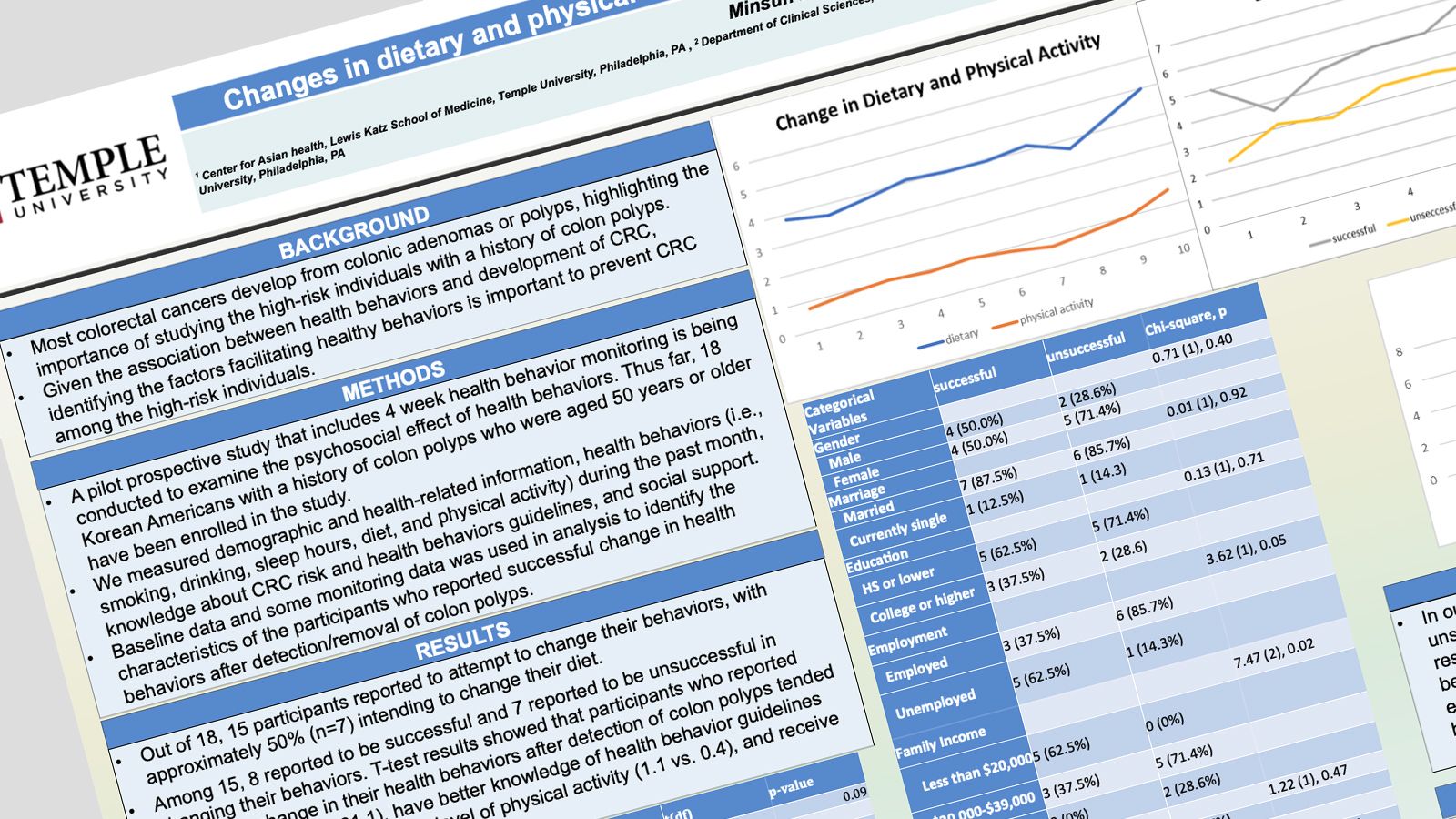
Changes in Dietary and Physical Activity Among Korean American Older Adults With a History of Colon Polyps
| Name | Minsun Lee |
| Institution | Hunter College |
| Research Field | Clinical Cancer Research |
| Role at Institution | Assistant Professor |
| Presenter(s) | Minsun Lee |
